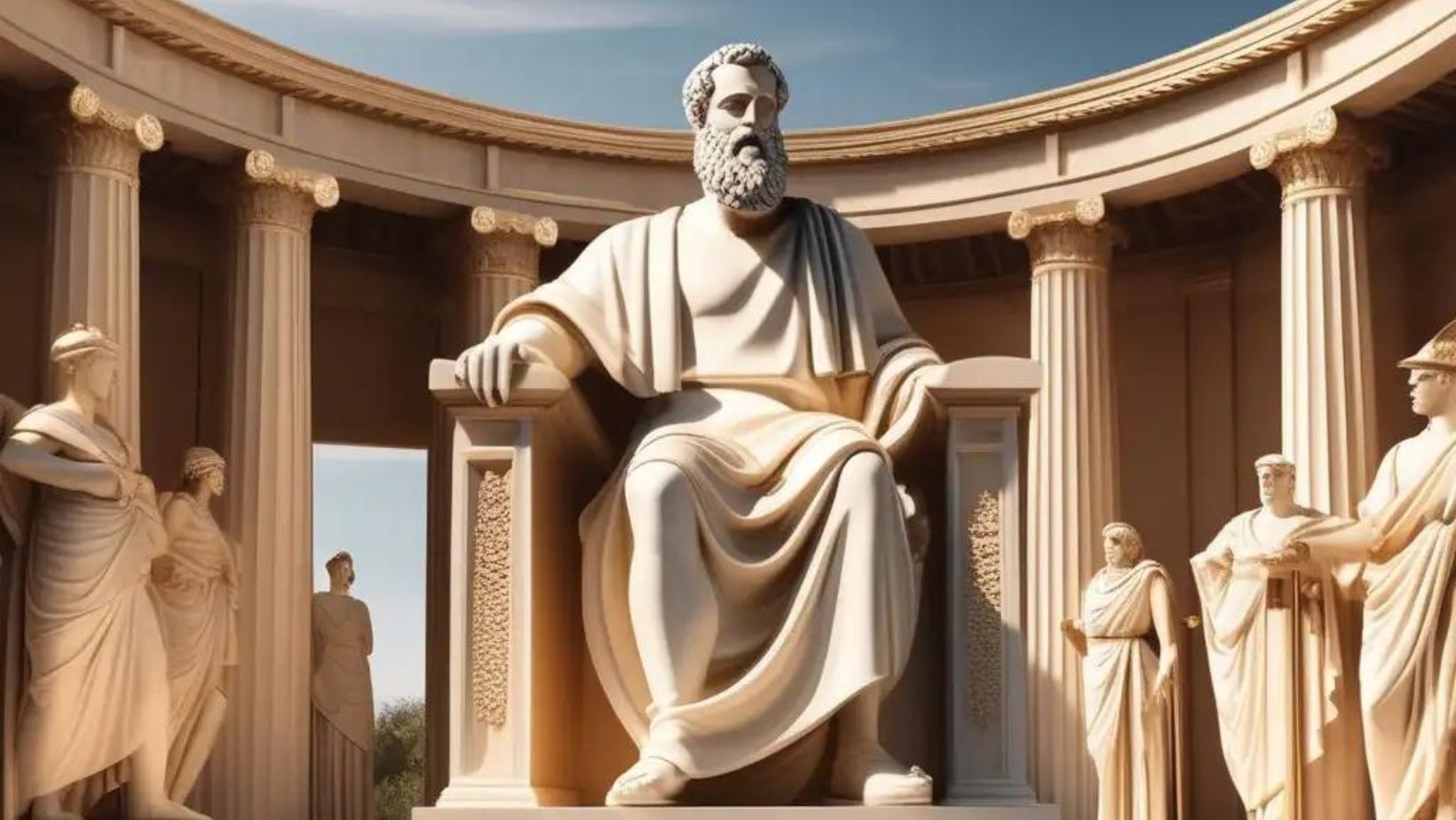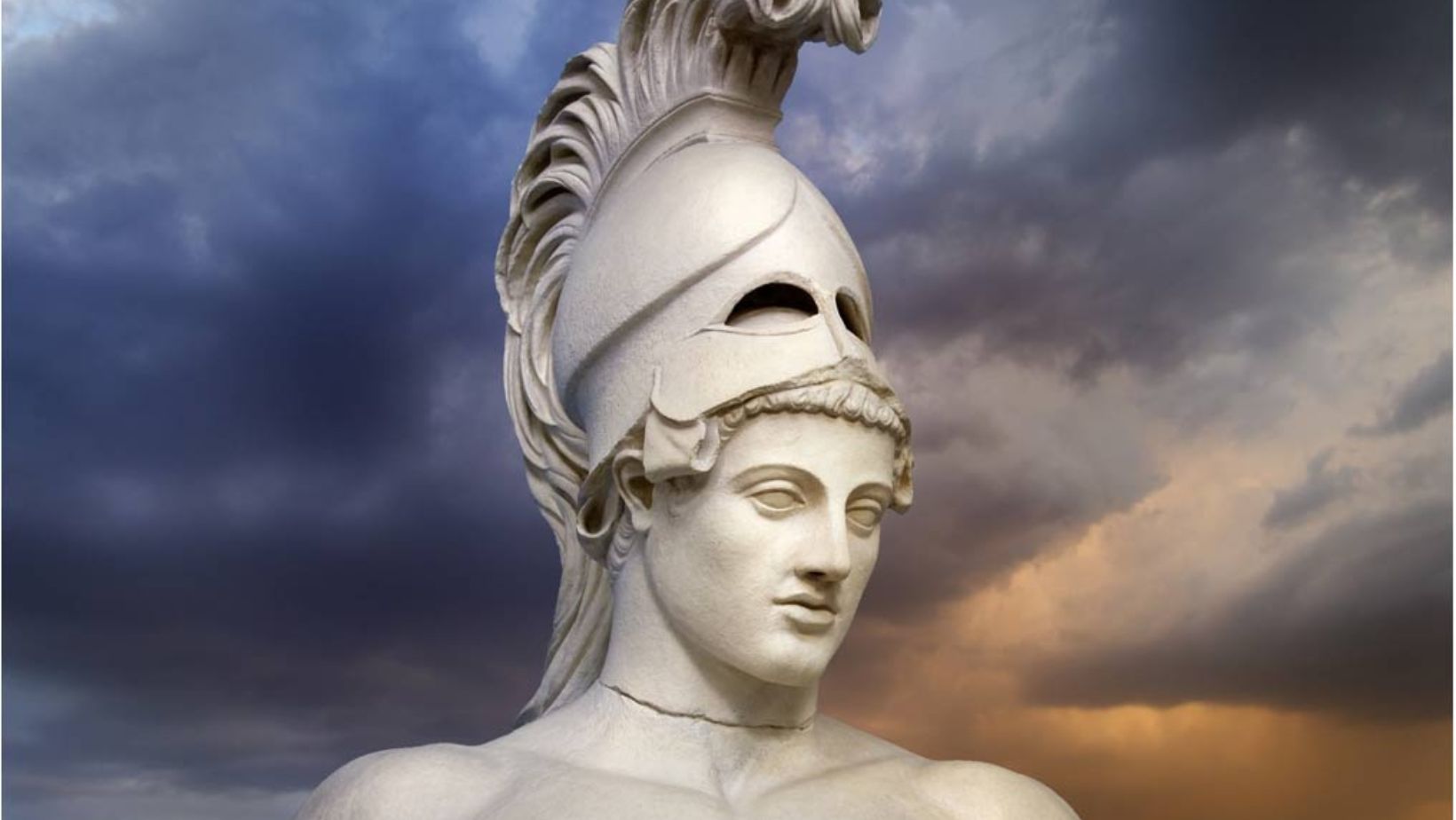Welcome! If you’ve ever wondered about the roots of modern democracy, look no further than ancient Greece – specifically, the era of Pericles Reforms. This period is not just a chapter in history books; it’s where politics as we know it got its start. Thanks to Pericles’ visionary reforms, Athens underwent transformations that would shape Western civilization forever.
So, who was this remarkable person whose actions etched their name forever into the annals of history? And what were these reforms that could propel an entire city-state into what many call the Golden Age? This wasn’t simply about delivering powerful talks or putting up new structures; it involved a deeper shift, reshaping how individuals viewed their identity and contribution to the community.
Let’s peel back the layers of time to understand why these changes mattered then—and why they still resonate with us today.
Table of Contents:
- Pericles’ Rise to Power in Athens
- Pericles’ Reforms and Transformation of Athens
- Pericles’ Military Leadership and the Peloponnesian Wars
- Pericles’ Personal Life and Controversies
- The Legacy of Pericles
- Conclusion
Pericles’ Rise to Power in Athens: Pericles Reforms

Pericles, the prominent Athenian statesman, was born into a distinguished family with a long history of political influence. His father, Xanthippus, was a military leader who played a significant role in the Persian Wars.
Pericles’ mother, Agariste, came from the powerful Alcmaeonidae family, known for their political clout. This impressive lineage undoubtedly shaped Pericles’ upbringing and set the stage for his future political career.
From an early age, Pericles was exposed to a wide range of disciplines. This well-rounded education helped mold him into a skilled orator and strategic thinker, essential qualities for navigating the complex world of Athenian politics.
According to the ancient historian Herodotus, Agariste dreamed she bore a lion a few days before Pericles’ birth. The symbols might be a bit hard to pin down, but they definitely tease the massive wave of change Pericles was about to bring over Athens.
Entry into Athenian Politics: Pericles Reforms
Pericles entered the political arena in the early 460s BCE. He first made a name for himself as a prosecutor in an exciting case against Cimon, who was well-known for his elite circle and pushing for closer ties with Sparta.
Pericles’ victory in this legal battle not only boosted his own standing but also marked a shift in Athenian politics towards more democratic ideals, which aligned with his beliefs and vision for Athens.
Pericles’ Reforms and Transformation of Athens: Pericles Reforms
Under Pericles’ leadership, Athens underwent a remarkable transformation. He implemented a series of reforms that expanded democratic participation and strengthened the Athenian empire.
Pericles’ vision of democracy was groundbreaking for its time and deeply influenced the development of Athenian society. He believed that when it came to making decisions for the community, everyone’s voice should count equally, no matter their bank account or social ladder rung.
Expansion of Democracy
Central to Pericles’ democratic reforms was the concept of isonomia, or equality before the law. He recognized that every citizen’s involvement was crucial for Athens’s prosperity and well-being.
Pericles played a key role in diminishing the power of the Areopagus, a council dominated by the aristocracy, and transferring authority to more democratic institutions like the Ekklesia (assembly) and Heliaia (law courts). These reforms were pivotal in advancing the democratic process and empowering a wider population segment.
“Pericles became a key figure in transforming Athens into one of the most radical, direct democracies ever seen.”
– Assistant Professor David T. West, Ashland University
Pericles also focused on strengthening the Athenian empire. He knew that for Athens to keep its clout and power in the neighborhood, having the strongest navy was a game-changer. Under his leadership, Athens consolidated its control over the Delian League, a coalition of Greek city-states originally formed to counter the Persian threat.
Pericles transformed the Delian League into an instrument of Athenian imperialism, using its resources to fund ambitious building projects in Athens and solidify its cultural and political dominance.
Patronage of the Arts and Culture: Pericles Reforms
Pericles’ reign is often called the “Golden Age” of Athens due to the remarkable flourishing of art, architecture, and philosophy. He loved supporting the arts, often hiring famous sculptors, architects, and playwrights to bring his creative visions to life.
The Parthenon, one of the most iconic buildings in world history, was constructed under Pericles’ direction. This magnificent temple on the Acropolis served as a symbol of Athens’ wealth, power, and cultural sophistication.
Pericles’ Military Leadership and the Peloponnesian Wars
Pericles’ military strategy primarily focused on leveraging Athens’ naval supremacy. He knew that Athens’s real muscle wasn’t on land but out at sea, thanks to its top-notch fleet, which left its army in the dust.
Pericles advocated a defensive strategy, avoiding direct confrontation with the formidable Spartan army and instead relying on the protection of Athens’ fortifications and the power of its navy to maintain the city’s security and interests.
The First Peloponnesian War (460-445 BCE) was a series of conflicts between Athens and Sparta and their respective allies. Pericles played a crucial role in shaping Athenian strategy during this period.
He recognized the importance of maintaining Athens’ naval dominance and focused on strengthening the city’s maritime power. Pericles also sought to establish Athens as the leader of a democratic alliance, presenting the city as a champion of Greek freedom in contrast to Sparta’s oligarchic system.
Thirty Years’ Peace: Pericles Reforms
The First Peloponnesian War concluded with the signing of the Thirty Years’ Peace in 445 BCE. Pericles was instrumental in negotiating this treaty, which recognized Athens’ supremacy in the Aegean and allowed the city to focus on consolidating its power and influence.
During this period of relative stability, Pericles pursued his ambitious building projects and cultural initiatives, further enhancing Athens’ prestige and cementing its position as the cultural and intellectual center of the Greek world.
Second Peloponnesian War
The peace, however, was short-lived. Tensions between Athens and Sparta continued to simmer, ultimately erupting into the Second Peloponnesian War in 431 BCE. Pericles’ strategy in this conflict was to avoid direct engagement with the superior Spartan land forces and instead rely on Athens’ naval strength.
He ordered the evacuation of the Athenian countryside and brought the population within the city’s walls, planning to outlast the Spartans by maintaining access to the sea. While effective in the short term, this strategy had significant consequences for the Athenian population, which suffered from overcrowding and a devastating plague that swept through the city.
Pericles’ Personal Life and Controversies: Pericles Reforms
Despite his political and military successes, Pericles’ personal life was not without controversy. His relationships and family connections were often the subject of scrutiny and criticism from his political opponents.
One of the most notable figures in Pericles’ life was Aspasia, a brilliant and influential woman from Miletus. Despite her foreign origin, Aspasia became Pericles’ companion and intellectual equal.
Their relationship challenged traditional Athenian norms and sparked controversy due to Aspasia’s status as a non-Athenian. Despite everything, their teamwork showed just how much Pericles was ready to shake up the usual ways and pick people for their skills over where they came from.
Conflicts with Political Rivals: Pericles Reforms
Throughout his career, Pericles often found himself dodging the political punches thrown by rivals who were always on his heels. One of his most formidable opponents was Thucydides (not to be confused with the historian), who criticized Pericles’ policies and accused him of squandering public funds on his building projects.
Pericles’ familial connection to the Alcmaeonidae clan, which had a history of political controversies, was also a source of criticism. Despite these challenges, Pericles managed to maintain his position of influence through his oratorical skills, strategic vision, and the support of the Athenian people.
The Legacy of Pericles: Pericles Reforms

Pericles’ impact on Athens and the broader Greek world was profound and enduring. His leadership transformed Athens into a beacon of democracy, culture, and imperial power, leaving an indelible mark on history.
Pericles’ reforms laid the foundation for a more inclusive and participatory democracy in Athens. Pericles really shook things up by boosting the power of everyday folks and putting a damper on the high-and-mighty aristocrats, making sure everyone in Athens had a say and could chip in.
This commitment to democratic ideals, while not perfect, set a precedent for future generations and inspired political thinkers for centuries to come. Pericles’ famous Funeral Oration, as recorded by Thucydides, encapsulates his vision of Athens as a model of democracy and civic virtue.
Influence on Western Philosophy and Culture
Athens during Pericles’ time really knocked it out of the park with its cultural and intellectual contributions, leaving a mark on Western civilization that’s still felt today. The works of art, architecture, and literature produced during this period continue to inspire and influence creators today.
The philosophical ideas explored by thinkers like Socrates, Plato, and Aristotle, who flourished after Pericles’ reign, laid the foundation for Western philosophy and continue to shape our understanding of the world.
“I think we ought to think about the history of Rome, as we ponder what our own future can be and what we can do about it. The Founders looked at the Roman Republic as an endless source of inspiration,” Professor in Humanistic Studies at Cornell University Barry Strauss said.
— The Hillsdale Collegian (@HDaleCollegian) February 15, 2023
Pericles’ legacy extends beyond the borders of Athens and even ancient Greece. His leadership, vision, and commitment to democratic ideals continue to resonate with leaders and thinkers around the world.
The “Age of Pericles” symbolizes human potential and the power of ideas to shape society. As we grapple with the challenges of our own time, Pericles’s example reminds us of the importance of visionary leadership, cultural excellence, and the enduring value of democracy.
Key Takeaway: Pericles Reforms
Pericles wasn’t just a politician; he was a game-changer for Athens. By pushing democracy forward, sparking cultural booms, and making Athens a powerhouse, he showed the world what visionary leadership can do.
Conclusion: Pericles Reforms
In reflecting on our journey through Athenian streets lit by the legacy of Pericles’ reforms, we find ourselves at a crossroads between past wisdom and present challenges. These weren’t mere policy updates but foundational shifts that redefined participation, governance, and culture—echoes of which are unmistakably felt even in today’s corridors of power.
The genius behind allowing more citizens to voice opinions, debate openly in public forums or partake in jury duty wasn’t just political innovation—it was a profound belief in human potential. The arts flourished under his patronage because he knew societies thrive not only from sound policies but also from nourishing creativity and intellect—the same principles driving forward-thinking communities now.
As we step away from ancient cobblestones onto our digital highways let’s carry with us lessons from those times—a reminder that change is always within reach if led by visionaries like Pericles who dare to reimagine their world.
This isn’t merely historical curiosity; it’s inspiration fuel for every one of us looking to make a difference.

